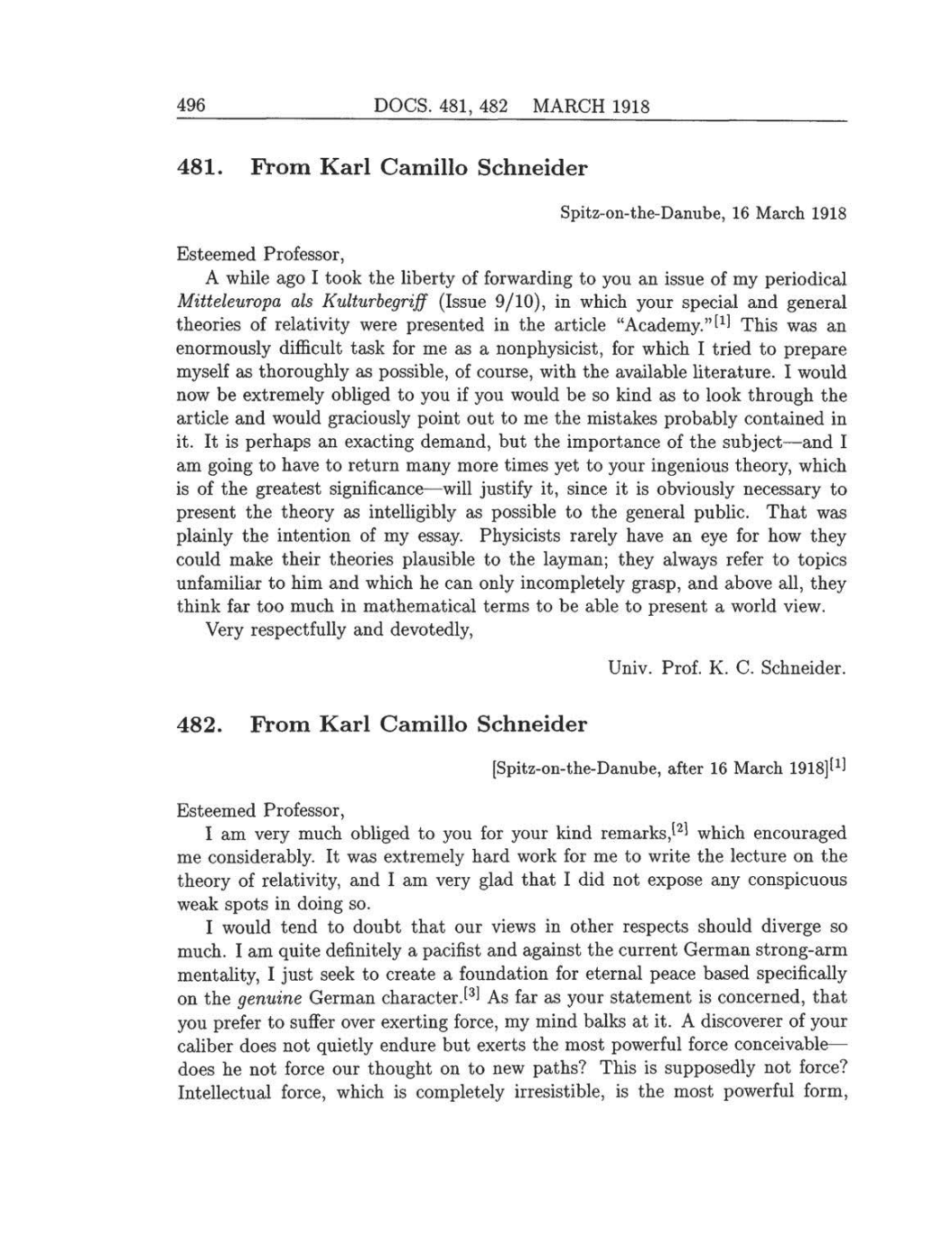496
DOCS.
481,
482
MARCH
1918
481.
From Karl Camillo Schneider
Spitz-on-the-Danube, 16
March
1918
Esteemed
Professor,
A
while
ago
I
took the
liberty
of
forwarding
to
you an
issue of
my periodical
Mitteleuropa
als
Kulturbegriff
(Issue
9/10),
in which
your special
and
general
theories
of relativity
were
presented
in
the
article
“Academy.”[1]
This
was an
enormously
difficult
task
for
me as a
nonphysicist,
for which
I
tried
to
prepare
myself
as
thoroughly
as
possible,
of
course,
with
the
available
literature.
I would
now
be
extremely
obliged
to
you
if
you
would be
so
kind
as
to
look
through
the
article
and would
graciously
point out to
me
the
mistakes
probably
contained in
it.
It
is perhaps
an
exacting demand,
but the
importance
of
the
subject-and
I
am
going
to
have to return
many
more
times
yet
to
your ingenious theory,
which
is
of
the
greatest significance-will justify
it, since it
is
obviously necessary
to
present
the
theory
as intelligibly as possible
to
the
general public.
That
was
plainly
the intention
of
my
essay.
Physicists rarely
have
an
eye
for how
they
could make
their
theories
plausible
to
the
layman; they always
refer to
topics
unfamiliar
to
him and which he
can
only incompletely grasp,
and above
all,
they
think
far too
much in
mathematical
terms to
be able
to
present
a
world
view.
Very respectfully
and
devotedly,
Univ. Prof.
K. C.
Schneider.
482.
From Karl Camillo Schneider
[Spitz-on-the-Danube,
after
16
March
1918][1]
Esteemed
Professor,
I
am
very
much
obliged
to
you
for
your
kind
remarks,[2]
which
encouraged
me
considerably.
It
was
extremely
hard
work for
me
to
write
the
lecture
on
the
theory
of
relativity,
and
I
am
very glad
that
I
did
not
expose any conspicuous
weak
spots
in
doing
so.
I
would
tend
to
doubt that
our
views
in
other
respects
should
diverge
so
much.
I
am
quite
definitely
a
pacifist
and
against
the
current German
strong-arm
mentality,
I just
seek to create
a
foundation for
eternal
peace
based
specifically
on
the
genuine
German character.[3]
As
far
as
your
statement
is concerned,
that
you prefer
to suffer
over
exerting force, my
mind balks at it. A discoverer
of
your
caliber does not
quietly
endure
but
exerts
the
most
powerful
force
conceivable–
does he not force
our
thought
on
to
new
paths?
This
is
supposedly
not force?
Intellectual
force,
which
is
completely irresistible,
is
the
most
powerful
form,
